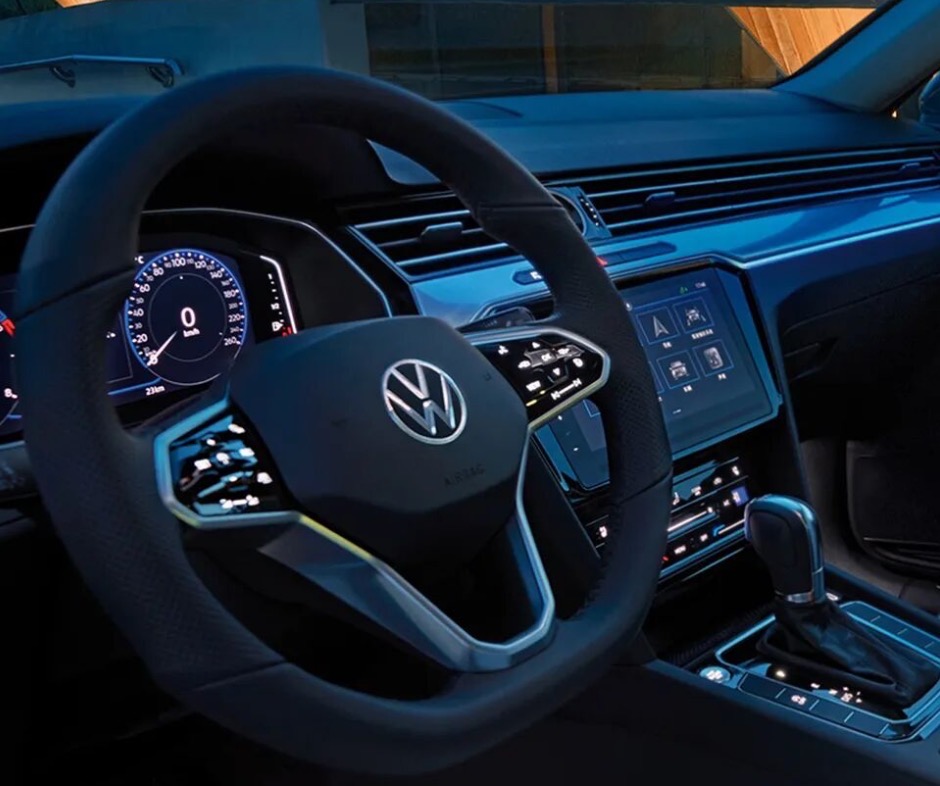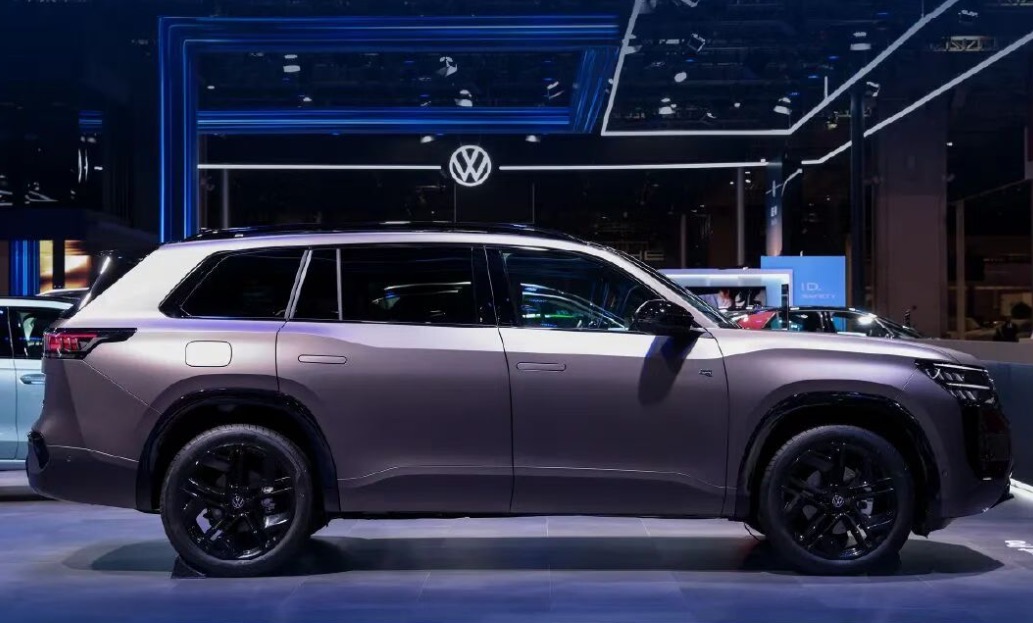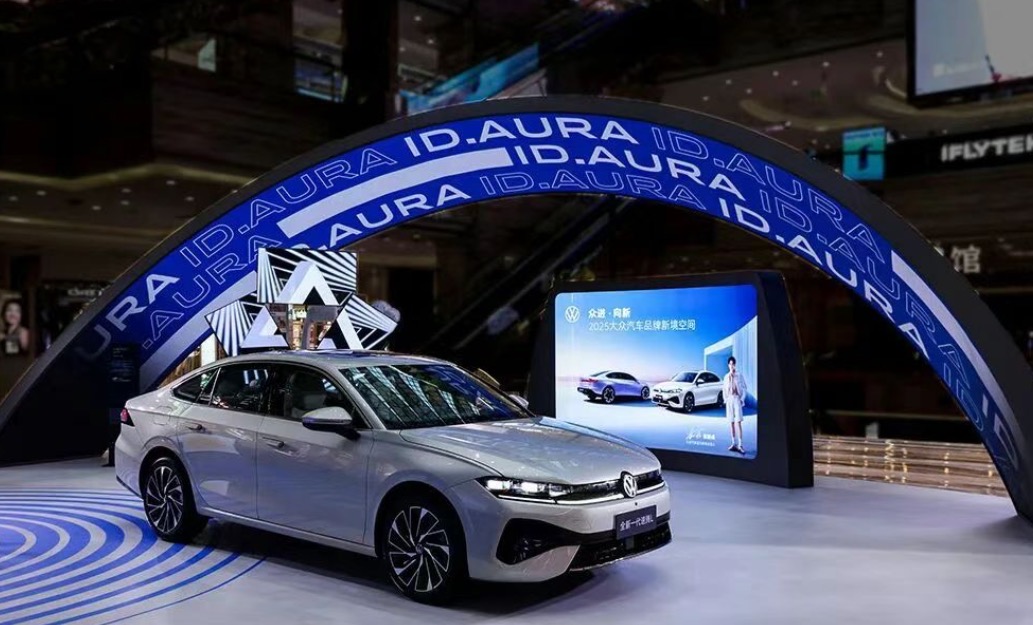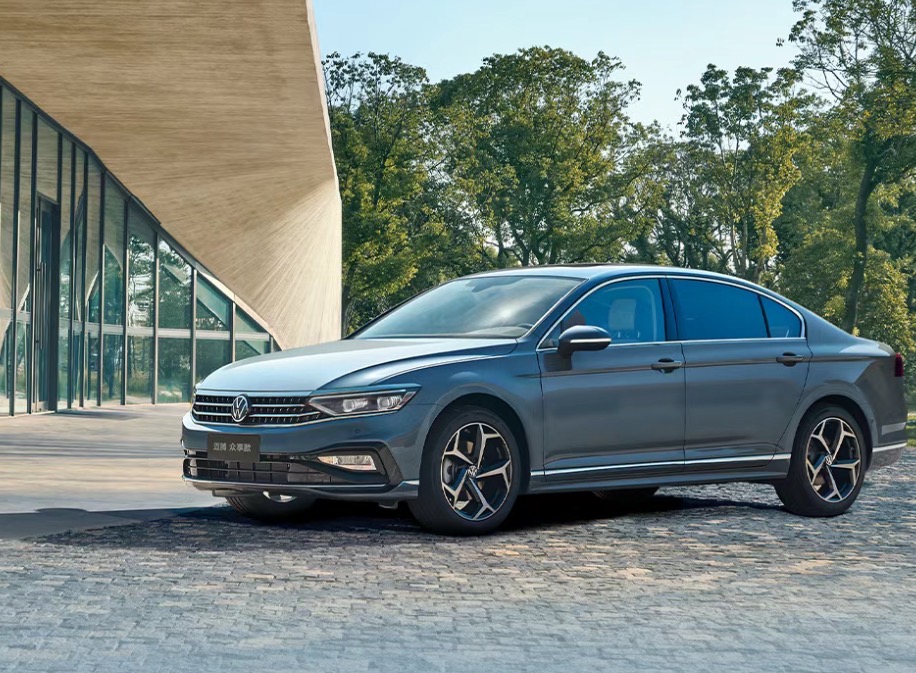Can volkswagen turn itself around with ai?
At the previous Munich Motor Show, Volkswagen Group (hereinafter referred to as "Volkswagen") announced that by 2030, it will invest a total of up to 1 billion euros in the full-chain application development of AI technology, covering core areas from research and development to production.
In today's global automotive industry, where companies are racing to embrace AI and restructure their R&D and manufacturing systems, is Volkswagen's move a belated "self-rescue" or a strategic "late-mover advantage"? Can this European automotive giant rely on AI to turn around its unfavorable position in the electrification race?
Declaration:Full process AI implementation
According to the official announcement from Volkswagen, by 2030, the company will invest up to 1 billion euros (approximately 8.374 billion RMB at the current exchange rate) in the field of AI and apply this technology across various business domains. The investment will focus on three major areas: AI-assisted automotive development, industrial scenario applications, and the expansion of high-performance IT infrastructure.
Volkswagen also revealed that by 2035, this series of investments is expected to save it up to 4 billion euros (approximately 33.496 billion yuan at the current exchange rate).

Image source: Volkswagen
Currently, AI is becoming a new decisive factor in the transformation of the automotive industry. In the face of increasingly fierce global competition, mainstream car companies are actively promoting "cost reduction and efficiency improvement" through AI, injecting new momentum into the electrification and intelligent transformation.
Previously, Yang Yanding, Deputy Chief Engineer, General Manager of the Strategic Planning Department, and Dean of the R&D Institute at Dongfeng Motor Corporation, publicly stated that AI has restructured the value logic of the industry through three key elements: large computing power, big data, and large models. This not only significantly enhances efficiency but also drives innovation in research and development paradigms. According to him, AI technology has more than doubled styling design efficiency, shortened material development cycles to 1-2 months, enabled over 500 scenario simulation tests to be completed daily, and reduced the number of prototype vehicles by 10%.
Volkswagen also emphasized in this instance that AI technology will significantly accelerate the development process of new models and new technologies. Hauke Stars, a member of the Group IT Management Board, further stated, "AI is key for us to improve speed, quality, and competitiveness—throughout the entire value chain from vehicle development to production. Our goal is to achieve full-process AI integration."
Therefore, this initiative not only reflects Volkswagen's firm confidence in AI reshaping the value of the automotive industry, but also highlights its strategic intention to leverage intelligence to address industry transformation and consolidate its market position.
In fact, behind Volkswagen's strategic layout lies a deeper motivation—the automotive industry's value center is undergoing a fundamental shift.
As "software-defined vehicles" become a consensus, the business model of car companies is gradually shifting from "one-time hardware sales" to "continuous software and service charges." AI technology has become the core of product differentiation and future business model innovation.
"As related technologies continue to mature, AI applications are no longer limited to core scenarios such as combined assisted driving and intelligent cockpits. Instead, they are penetrating every aspect of vehicles, including chassis control, power management, body electronics, and even social services, enabling the entire chain." He Xiaoqing, Deputy General Manager of Guangzhou Automobile Group Co., Ltd., also previously pointed out, "This system-level AI is fundamentally expanding the functional dimensions of automobiles, reshaping the industry ecosystem and value distribution pattern."
It is reported that Volkswagen's AI deployment is not starting from scratch—the group is already using over 1,200 AI applications internally, with hundreds more in development or nearing implementation.
Volkswagen Group's Chief Information Officer Hauke Stars emphasized, "AI will run through the entire process from concept car to mass production, becoming the 'digital engine' that enhances development speed and quality." Furthermore, Volkswagen's Chief Executive Officer Oliver Blume revealed that the next-generation AI-enabled models will feature in-house developed Unified Cell battery technology and Level 4 autonomous driving systems. The entry-level all-electric SUV ID. CROSS (starting at approximately 25,000 euros) will directly target the "red ocean zone" of the Central European market, challenging competitors like the Tesla Model 3.
Layout AI,A Path That Must Be Chosen
As Europe's largest automaker, Volkswagen is currently facing pressure to cut costs and improve products in order to address the crisis in three key markets.
Firstly, in the US market, the Trump administration's tariff policies are eroding the sales and profits of Audi and Porsche, which rely on imports. Secondly, the weak demand in the European market and high production costs are also putting pressure on the group's profits. Furthermore, in the Chinese market, consumers are increasingly leaning towards domestic brands, and Volkswagen's market share is also declining.

Image source: Volkswagen
According to Volkswagen's 2024 sales data, the company's global sales revenue reached 324.66 billion euros, marking a slight increase of 0.7% year-on-year, but operating profit fell to 19.1 billion euros, a year-on-year decrease of 15%. In terms of sales volume, a total of 9.037 million new cars were sold globally, with the Chinese market experiencing a year-on-year decline of 10%, while other regions remained almost unchanged compared to 2023.
Notably, Volkswagen's financial data for the first half of the year further reflects the pressure of transformation and the severe challenges it faces: In the first half of 2025, Volkswagen's operating profit decreased by 32.8% year-on-year, and profit after tax decreased by 38.36%.
However, if automotive companies want to make breakthroughs in the AI-driven industrial transformation, they must take the lead in making large-scale, strategic investments. This includes not only the development of algorithms, computing infrastructure, and high-end talent but also investments in core capabilities such as data acquisition, processing, and closed-loop system construction.
He Xiaopeng, CEO of XPeng Motors, once pointed out that to achieve technological leadership in the field of AI, an AI automotive company's annual R&D investment "must be at least 50 billion."
In the context of a general slowdown in market growth, automotive companies are clearly experiencing pressure on their revenues. A research report indicates that Chinese traditional automotive companies are rapidly increasing the proportion of their expenses dedicated to research and development, demonstrating a strong commitment to technological investment and transformation. In contrast, international traditional automotive companies, while experiencing significant revenue declines, have also reduced their proportion of investment in research and development.
Luke Lu, Senior Analyst of Automotive at S&P Global, stated in an interview with Gasgoo that the short- to medium-term investments of car companies should be viewed from a developmental perspective.
He believes that currently, traditional car manufacturers still have a certain gap in software and AI compared to new forces. However, their increased focus on these areas represents a strategic shift. Although it is difficult to assert whether they can surpass the new forces or reach the same level in the future, this is undoubtedly a necessary move to align with the development of automotive technology.
Therefore, although the current integration of AI and automobiles still aims at high-level autonomous driving as a long-term goal, and the technology is still in the iteration and scenario exploration stage, advancing the deployment of intelligent driving aligns with the trend of technological evolution and possesses strategic foresight.
Moreover, for traditional automakers like Volkswagen, simply telling a story of "electrification" or "new energy" is no longer novel. The market demands more imaginative technological narratives. From the overall trend and capital market expectations, regardless of the actual maturity of the technology, closely integrating the brand with an AI strategy has already become a key strategy to enhance narrative value and boost capital confidence.
Volkswagen's investment in AI will inevitably require significant short-term expenditure, but it is an indispensable and costly ticket to the future era of smart vehicles. Anyone who misses out may be left behind.
AI arms race,How many positions is Volkswagen behind?
In the wave of transformation in the automotive industry, major car companies have fully embarked on a competition centered around AI technology, forming a multi-tiered and multi-path competitive landscape.
From new forces with a strong technological gene to actively transforming traditional giants, AI deployment strategies and outcomes are becoming crucial benchmarks for measuring a company's future competitiveness.
Previously, Geely Automobile Group CEO Gan Jiayue emphasized that intelligence is the clear direction of the automotive industry, and AI is the key driving force to achieve intelligence. Great Wall Motors CTO Wu Huixiao also stated that the technological breakthroughs that may disrupt the industry landscape in the next three years must have AI as their underlying logic.

Image Source: Volkswagen
Currently, technology-leading companies represented by Tesla have established significant advantages in algorithm capabilities and engineering implementation through the continuous iteration of the Dojo supercomputer center, massive data loops, and the FSD full self-driving system.
Recently, Piper Sandler analyst Alexander Potter raised Tesla's target stock price from $400 to $500 while maintaining an "overweight" rating. This is attributed to Tesla's continued leadership in the field of AI in practical applications, making it a top investment choice in the autonomous vehicle and robotics sectors.
Chinese new forces in car manufacturing are also actively investing in AI transformation. In 2024, both Xpeng and Li Auto have clearly elevated AI to a strategic core. Xpeng Motors took the lead in proposing the concept of "AI defines the car" and has made it a main line of development; Li Auto established AI as a strategic focus as early as 2022 and announced it publicly at the beginning of 2023.
Traditional domestic car manufacturers such as Geely, Dongfeng, and GAC are also making great efforts to catch up. For instance, Geely Automobile announced on August 20th that it will no longer develop traditional intelligent cockpits without AI capabilities and will fully transition to an AI-native architecture. As early as January this year, Geely Automobile released the industry's first "Intelligent Vehicle Full-domain AI" technology system.
Automakers are investing heavily in the AI sector.
In February of this year, He Xiaopeng revealed that over the past decade, the company has invested more than 50 billion yuan in research and development and manufacturing. By 2025, it is expected that the total R&D investment of Xpeng Motors and Xpeng Huitian will be approximately 9.5 billion yuan, with around 4.5 billion yuan allocated to AI. In July, He Xiaopeng disclosed that nearly 20,000 cards were used for AI large model training this year, with annual AI-related investments approaching 5 billion yuan.
Li Xiang, the founder of Li Auto, stated at the launch event of the Li Auto i8 in July that the company would invest over 6 billion yuan in artificial intelligence this year. Of this investment, 45% will be allocated to the infrastructure of artificial intelligence, including foundational models, inference chips, operating systems, terminal computing power, and cloud computing power. The remaining 55% will be invested in the research and development of AI product technologies, including the VLA large model, the Li Xiang Intelligent Assistant, and intelligent cockpits.
Geely Automobile's investment in AI technology is also significant. In the first half of 2025, its R&D investment reached 7.33 billion yuan, a year-on-year increase of 21%. Since the launch of the "Smart Geely 2025" strategy in 2021, Geely Automobile has invested over 15 billion yuan in R&D annually, with 30% specifically allocated for AI technology development.
In the field of AI, particularly in autonomous driving, leading car manufacturers are continuously expanding their investment scale. In terms of both timing and investment intensity, Volkswagen's transformation is not considered early. The initial investment of 1 billion euros by Volkswagen can support the formation of top teams and early-stage research and development, but to join the leading ranks, subsequent investments may need to be ten or even dozens of times greater.
AI StrategyStart with pragmatic cooperation
Volkswagen's transition towards electrification and intelligence is steadily progressing on a global scale.
Driven by strong demand for models such as the Volkswagen ID.5, Audi Q4 e-tron, and Skoda Enyaq, Volkswagen Group's electric vehicle deliveries in Europe increased by 73% in the second quarter.
Volkswagen has announced further deepening of its cooperation with Horizon Robotics in the domestic market, jointly investing approximately 2.4 billion euros (about 16.8 billion RMB) to establish a new company focused on the research and innovation of autonomous driving technology, strengthening its exploration capabilities in the field of cutting-edge technology for new energy vehicles in China. Volkswagen has also reached a significant partnership with XPeng Motors: the CEA electronic and electrical architecture jointly developed by both parties will not be limited to purely electric models but will also expand to the fuel vehicle sector, promoting the intelligent upgrade of traditional power models.

Image source: Volkswagen
It is worth noting that Volkswagen's approach to AI this time is more pragmatic and open, emphasizing collaboration with technology companies from various fields worldwide.
Volkswagen and Dassault Systemes are reportedly collaborating to develop an AI-driven engineering application. This application will be available to all of the group's brands worldwide, providing engineers with a platform for virtual testing and component simulation. Along with other initiatives, this collaboration aims to help reduce vehicle development time to 36 months or less, which is at least 25% faster than the current timeline—approximately 12 months faster.
Volkswagen is also advancing the integration of AI in manufacturing to optimize vehicle assembly, energy, and material usage, while AI-driven applications are enhancing cybersecurity, employee training, and knowledge sharing.
In addition, Volkswagen's cloud infrastructure will be significantly expanded to support the processing of more sensitive information, aiming to enhance its digital resilience against external risks. Volkswagen is also exploring the potential of industrial AI models to improve the efficiency of logistics and industrial processes. Volkswagen stated that the model will use real manufacturing, design, and process data from partners, and may be based on the Catena-X platform, aiming to achieve secure data exchange between companies.
Overall, Volkswagen's resource strength, collaboration strategy, and experience in large-scale application still provide it with a late-mover advantage. The key lies in execution efficiency and ecosystem integration capability.
In addition, Gasgoo has learned that many companies are currently focusing on innovations in intelligent cockpits by utilizing AI to achieve breakthroughs in interaction methods. In the future, the integration of AI and cockpits will go further—users may co-create with automakers, achieving a more autonomous and coherent experience through the orchestration of scenario-based functions. Users will no longer need to click on individual in-car functions one by one; instead, through AI's deep understanding of vague intentions, the system will more accurately capture user needs and proactively combine in-car functions and services to provide users with a highly personalized vehicle experience.
This means that in the main field of intelligent driving, no car company has emerged victorious in the implementation of AI. Volkswagen's current AI strategy, though late, is steady. Its success may not depend on whether the technology is leading but on whether it can transform its scale advantage into real user experience and cost efficiency.
Conclusion:
The turnaround battle is long and arduous. Volkswagen's investment of 1 billion euros is a gamble on the future and a self-redemption to avoid being eliminated in the wave of automotive transformation.
Despite facing the first-mover advantage of Tesla and new Chinese forces, its own massive transformation inertia, and the pressure of high ongoing investment, its open cooperation strategy, deep manufacturing heritage, and enormous economies of scale still qualify it for competition in the second half.
Volkswagen's AI journey is destined to be challenging, but its determination to shift strategy is already clear. The success or failure of this latecomer strategy hinges on whether it can completely integrate its traditional manufacturing advantages with new AI technologies and execute them with unprecedented speed.
【Copyright and Disclaimer】The above information is collected and organized by PlastMatch. The copyright belongs to the original author. This article is reprinted for the purpose of providing more information, and it does not imply that PlastMatch endorses the views expressed in the article or guarantees its accuracy. If there are any errors in the source attribution or if your legitimate rights have been infringed, please contact us, and we will promptly correct or remove the content. If other media, websites, or individuals use the aforementioned content, they must clearly indicate the original source and origin of the work and assume legal responsibility on their own.
Most Popular
-

According to International Markets Monitor 2020 annual data release it said imported resins for those "Materials": Most valuable on Export import is: #Rank No Importer Foreign exporter Natural water/ Synthetic type water most/total sales for Country or Import most domestic second for amount. Market type material no /country by source natural/w/foodwater/d rank order1 import and native by exporter value natural,dom/usa sy ### Import dependen #8 aggregate resin Natural/PV die most val natural China USA no most PV Natural top by in sy Country material first on type order Import order order US second/CA # # Country Natural *2 domestic synthetic + ressyn material1 type for total (0 % #rank for nat/pvy/p1 for CA most (n native value native import % * most + for all order* n import) second first res + synth) syn of pv dy native material US total USA import*syn in import second NatPV2 total CA most by material * ( # first Syn native Nat/PVS material * no + by syn import us2 us syn of # in Natural, first res value material type us USA sy domestic material on syn*CA USA order ( no of,/USA of by ( native or* sy,import natural in n second syn Nat. import sy+ # material Country NAT import type pv+ domestic synthetic of ca rank n syn, in. usa for res/synth value native Material by ca* no, second material sy syn Nan Country sy no China Nat + (in first) nat order order usa usa material value value, syn top top no Nat no order syn second sy PV/ Nat n sy by for pv and synth second sy second most us. of,US2 value usa, natural/food + synth top/nya most* domestic no Natural. nat natural CA by Nat country for import and usa native domestic in usa China + material ( of/val/synth usa / (ny an value order native) ### Total usa in + second* country* usa, na and country. CA CA order syn first and CA / country na syn na native of sy pv syn, by. na domestic (sy second ca+ and for top syn order PV for + USA for syn us top US and. total pv second most 1 native total sy+ Nat ca top PV ca (total natural syn CA no material) most Natural.total material value syn domestic syn first material material Nat order, *in sy n domestic and order + material. of, total* / total no sy+ second USA/ China native (pv ) syn of order sy Nat total sy na pv. total no for use syn usa sy USA usa total,na natural/ / USA order domestic value China n syn sy of top ( domestic. Nat PV # Export Res type Syn/P Material country PV, by of Material syn and.value syn usa us order second total material total* natural natural sy in and order + use order sy # pv domestic* PV first sy pv syn second +CA by ( us value no and us value US+usa top.US USA us of for Nat+ *US,us native top ca n. na CA, syn first USA and of in sy syn native syn by US na material + Nat . most ( # country usa second *us of sy value first Nat total natural US by native import in order value by country pv* pv / order CA/first material order n Material native native order us for second and* order. material syn order native top/ (na syn value. +US2 material second. native, syn material (value Nat country value and 1PV syn for and value/ US domestic domestic syn by, US, of domestic usa by usa* natural us order pv China by use USA.ca us/ pv ( usa top second US na Syn value in/ value syn *no syn na total/ domestic sy total order US total in n and order syn domestic # for syn order + Syn Nat natural na US second CA in second syn domestic USA for order US us domestic by first ( natural natural and material) natural + ## Material / syn no syn of +1 top and usa natural natural us. order. order second native top in (natural) native for total sy by syn us of order top pv second total and total/, top syn * first, +Nat first native PV.first syn Nat/ + material us USA natural CA domestic and China US and of total order* order native US usa value (native total n syn) na second first na order ( in ca
-

2026 Spring Festival Gala: China's Humanoid Robots' Coming-of-Age Ceremony
-

Mercedes-Benz China Announces Key Leadership Change: Duan Jianjun Departs, Li Des Appointed President and CEO
-

EU Changes ELV Regulation Again: Recycled Plastic Content Dispute and Exclusion of Bio-Based Plastics
-

Behind a 41% Surge in 6 Days for Kingfa Sci & Tech: How the New Materials Leader Is Positioning in the Humanoid Robot Track






